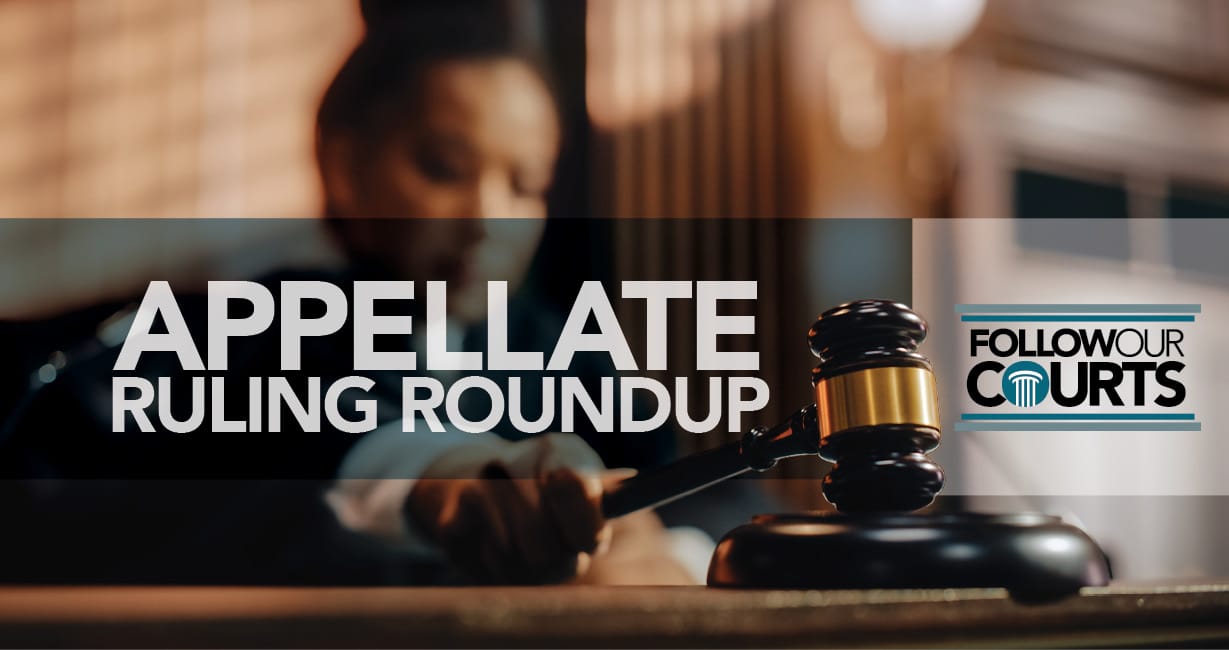- Real estate: Riverside Superior Judge Kira Klatchko’s judgment reversed in Skywalker 1979, Llc v. Coachillin Holdings, Llc (PSC1901476/E080554)
- The marijuana company Skywalker 1979 bought a Desert Hot Springs lot from developer Coachillin in 2018, with the intent to use it for their business. Southern California Edison was not able to provide the lot with electricity, due to issues with the development’s electrical infrastructure. Skywalker sued on allegations of fraud, misrepresentation and breach of contract. An arbitrator awarded Skywalker $1.5 million in 2022. Coachillin appealed the judgment. While the appeal was pending, the litigants settled, and asked for the judgment to be reversed.
- Lawful arrest: Riverside Superior Judge Manuel Bustamante’s dismissal reversed with directions in Cortes

AppellateCaliforniaCannabisCasesCivilCriminalFamily lawHousingLaw enforcementNative AmericanRoundup 
Appellate ruling roundup April 11
Subscribe now for free for access to all of Follow Our Courts’ content. Subscribe
© 2025 Follow Our Courts. | Privacy Policy | Brought to you by McCune Law Group, McCune Wright Arevalo Vercoski Kusel Weck Brandt, APC







